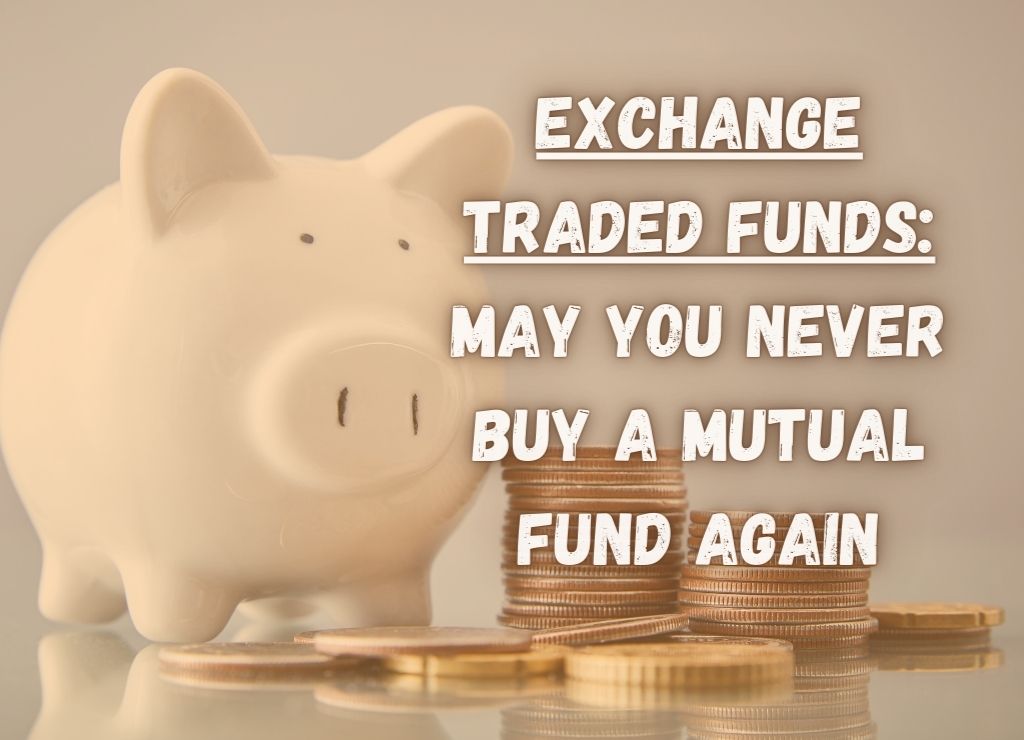Exchange Traded Funds: May You Never Buy a Mutual Fund Again
Many investors are still unaware of the advantages of Exchange Traded Funds, or ETFs, over traditional mutual funds. We will examine Exchange Traded Funds, their history, performance, and benefits, as well as the reasons why you should never buy a mutual fund again, in this article.
The most accurate way to describe ETF 101 Exchange Traded Funds is as a stock-and-mutual fund pairing.
An investor purchasing an ETF, like mutual funds, makes a one-time purchase of a pool of securities. Take, for instance, the ETF DIA, which stands for "Diamonds." permits the investor to acquire a stake in the Dow Jones Industrial Average.
An ETF, like a stock, can be bought with a brokerage account, traded all day, bought on margin, and offers stock-like trading features like limit orders, stop orders, and short selling. ETFs come in a variety of flavors. They monitor every major index, including the Dow, S&P 500, NASDAQ 100, and Russell 2000. Investors who want to trade sectors like energy, technology, precious metals, finance, health care, emerging markets, interest rates, and many others can also get them.
Since their introduction more than a decade ago, ETFs have experienced rapid growth as a popular investment vehicle among public investors. At first, professional traders were the primary users of these funds.
Because they offer significant advantages over mutual funds, ETFs have gained such widespread acceptance and popularity. ETFs have many advantages, including:
It's easy to see why Exchange Traded Funds have been growing at a rate of nearly 50% per year since 1993: --Continuous pricing throughout the day as opposed to end-of-day pricing for mutual funds; --Can be bought on margin; --Can use limit and stop orders so you can exit or enter during the trading day; --Have lower expenses than mutual funds and no management fees;
Conclusion:
It is not difficult to comprehend why the popularity of Exchange Traded Funds has steadily increased over the past twelve years. They truly do provide investors with the optimal combination of flexibility and potential profit by combining the advantages of mutual funds and stocks.
Obviously, the big mutual fund companies don't like ETFs. However, they have had to get used to the fact that they are now so popular that many fund families have started selling their own ETFs in recent years.
ETFs offer investors significant cost, flexibility, and diversity advantages, so you should never buy a mutual fund again.
Recent Posts:-
- how to find best stocks
- how to select good mutual fund
- How to Choose the Best Mutual Funds with No Fees
- Mutual Fund –What Is Hedge Fund
- How To Pick A Good Mutual Fund
- Mutual fund Net Asset Value (NAV)
- Type of Mutual Fund Schemes
- Advantages Of Investing In Mutual Funds
- Why mutual fund subjected to market risk
- Exchange traded funds Vs Mutual Funds
Recent Posts
- how to find best stocks
- how to select good mutual fund
- How to Choose the Best Mutual Funds with No Fees
- Mutual Fund –What Is Hedge Fund
- How To Pick A Good Mutual Fund
- Mutual fund Net Asset Value (NAV)
- Type of Mutual Fund Schemes
- Advantages Of Investing In Mutual Funds
- Why mutual fund subjected to market risk
- Exchange traded funds Vs Mutual Funds
